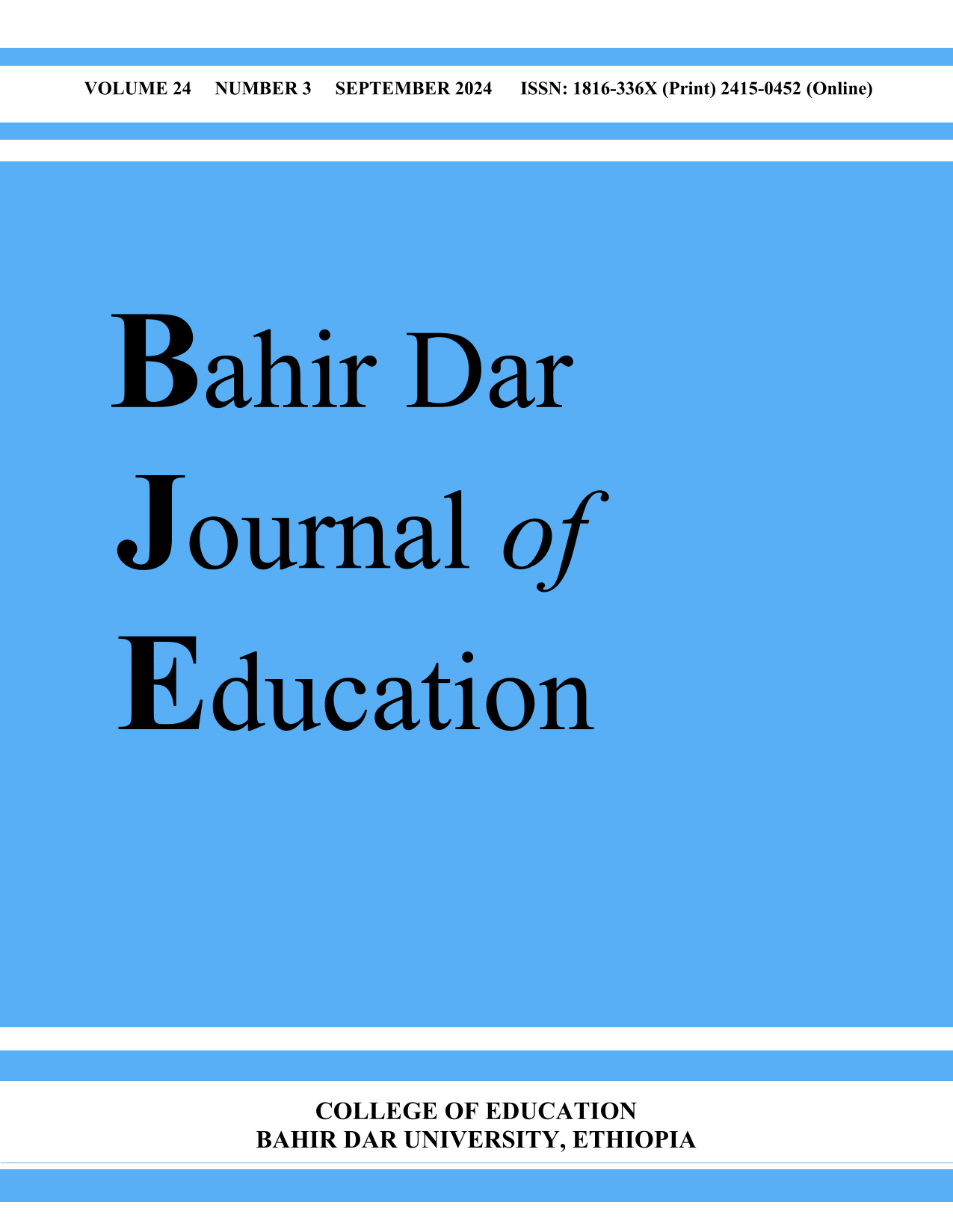Main Article Content
Teacher effectiveness in English-medium instruction and students’ academic achievement: A value-added model in action
Abstract
This study aimed to investigate the association between general science teachers’ effectiveness in teaching through English and students’ academic success in Debre Birhan City. In addition, it sought to determine which dimensions of English as a medium of instruction (EMI) accounted for the greatest variability. Furthermore, it examined whether demographic variables such as sex, qualification, and experience co-variated with students’ academic achievement (SAA). A non-experimental correlational design was employed. The study sample included 45 randomly selected teachers and 1575 students in 45 classrooms. A teacher effectiveness questionnaire and an academic achievement test were used as data collection tools implementing the principle of the value-added model. The findings revealed a strong relationship between teachers’ effectiveness in teaching science through English and SAA, with pedagogical knowledge being the highest contributor and experience co-variating with SAA. The unstandardized coefficient output also reveals that SAA increases by a certain percentage as every scale of EMI increases. The study recommends on-the-job training for EMI teachers. Additionally, experienced teachers should work in pairs with younger teachers and share fresh perspectives on teaching methods and effective language use. The introduction of EMI implementation policies is also recommended.







